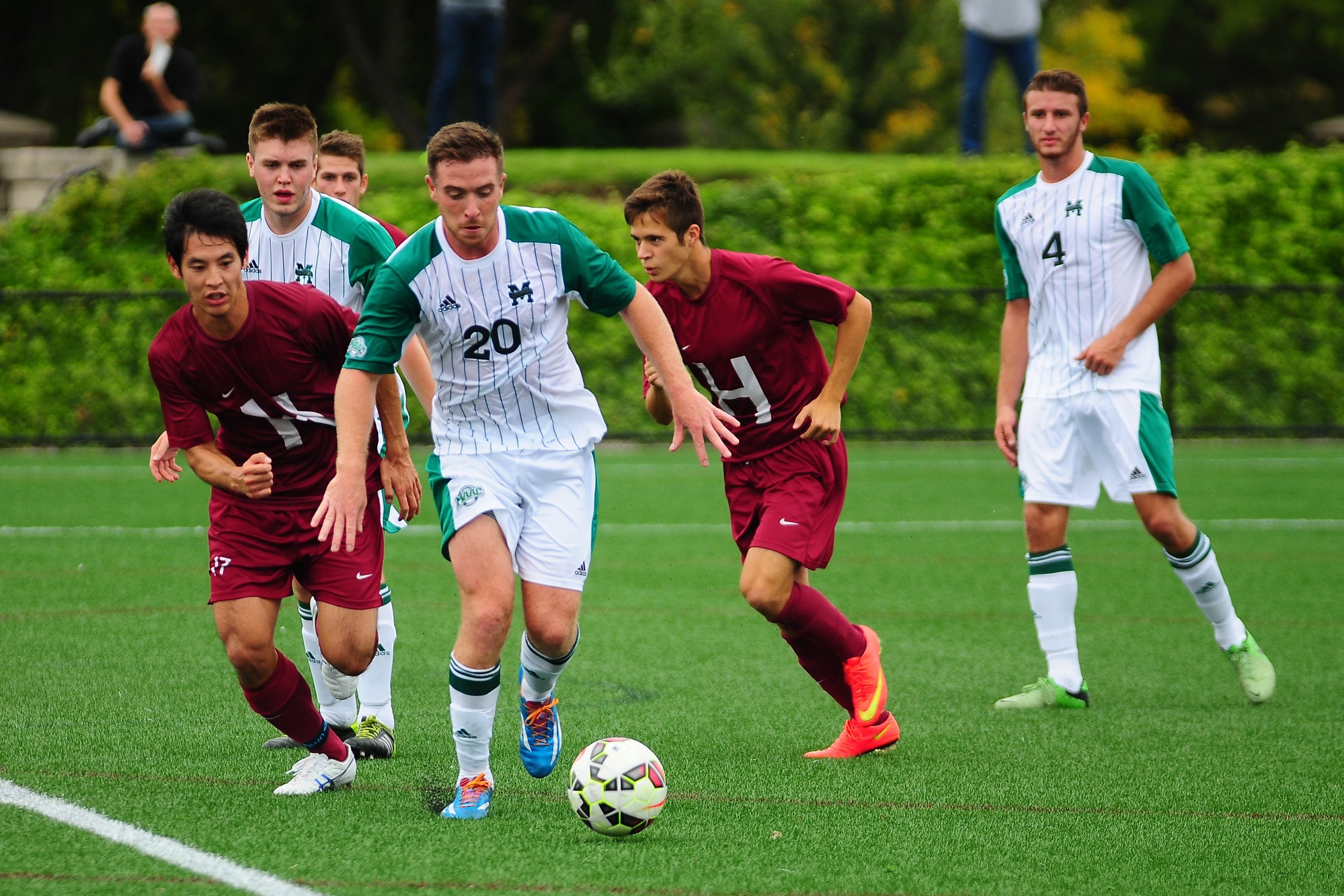
News
HMS Is Facing a Deficit. Under Trump, Some Fear It May Get Worse.

News
Cambridge Police Respond to Three Armed Robberies Over Holiday Weekend

News
What’s Next for Harvard’s Legacy of Slavery Initiative?

News
MassDOT Adds Unpopular Train Layover to Allston I-90 Project in Sudden Reversal

News
Denied Winter Campus Housing, International Students Scramble to Find Alternative Options
Men's Soccer Emerges Victorious in Overtime Against Massachusetts

At halftime of every game, the Harvard men’s soccer team (5-3) huddles on its own. Forwards meet with forwards; defenders cluster nearby. Amongst themselves, each position unit goes over the last 45 minutes of play—noting the needed adjustments. Harvard coach Pieter Lehrer encourages the players to make adjustments on the field, making only minor additions to their conclusions.
After the Crimson comeback from a two-goal deficit for the second straight game, a 3-2 overtime win over Massachusetts (1-6), it’s safe to say the adjustments are the right ones.
“It’s really amazing what they have done,” Lehrer said, following his team’s fifth consecutive victory. “A lot of what we do and implement is about them thinking and them making decisions on the field. The system is very much about them making the adjustments and teaching them what tactic to apply in what situation.”
As on Tuesday, when Harvard scored three goals in 16 minutes to steal a victory from Boston College, the Crimson fell behind early against Massachusetts. Two early Minutemen goals—a penalty kick from Josh Schwartz and a Mark Morris rocket from 30 yards out—put Harvard in a 2-0 hole just 17 minutes into the contest.
The Crimson hardly blinked.
“After the second goal they scored, we gathered the team on the field and there was no doubt, no disappointment and lack of confidence,” junior co-captain Mark Ashby said. “We had full confidence we were going to come back and win that game.”
The comeback started on the defensive end. After connecting on its first two shots, Massachusetts would not get off another shot for the next 80 minutes. Ashby and the rest of the back line moved forward, cutting off avenues of attack and maintaining possession.
What followed was a historic onslaught of shots. Harvard launched 33 shots, 21 on goal. Forwards Jake Freeman and Tyler Savitsky had five apiece as the Crimson challenged Minutemen goalkeeper Ryan Buckingham time and time again. It broke through for the first time in the 40th minute, when Freeman got his head on a loose ball and poked it through to cut the deficit to one.
“I think in this game especially we needed to be more patient with the ball and we had more success by using our center midfielders,” Ashby said. “Although we were down two goals, we were trying not to be desperate and make sure we were patient with the ball.”
Harvard went up a man just seven minutes into the second half when Massachusetts sophomore Luke Pavone was sent off. Nine seconds later, the Crimson capitalized when freshman midfielder Sam Brown found sophomore forward Daniel Smith on the ensuing free kick. Smith’s header into the back of the net squared the game at two.
Buckingham buckled down, and Harvard’s constant pressure—including 11 shots in nine minutes at one point—did not yield the decider in regular time. Come extra time, where Harvard is 2-0 on the year, the Crimson quickly took advantage, however.
Capturing possession quickly, Harvard pushed upfield, its efforts yielding a corner kick. There, junior forward Andrew Chang—the hero on Tuesday—found senior forward Hiroki Kobayashi amongst a crowd in the box. Kobayashi’s header rung true—flying past Buckingham to complete Harvard’s third comeback in five games.
“[Kobayashi’s] work rate has gone through the roof and that has really changed his whole game,” Lehrer said. “He works hard defensively, he makes a lot of hard through runs and he follows up shots. His commitment to really being a more complete player has helped…. He has improved tremendously.”
After the game, Lehrer noted that it took a year before the team was fully comfortable making its own adjustments at halftime. However, with the team closing its non-conference schedule on a five-game, 16-7 run, he noted that they now get it right “99 percent of the time”.
“That type of change is where they take hold of the team and they really draw in the process of what we do during halftime,” Lehrer said. “A big reason for why they have so much success is that they put so much into it.”
—Staff writer David Freed can be reached at david.freed@thecrimson.com.
Want to keep up with breaking news? Subscribe to our email newsletter.
